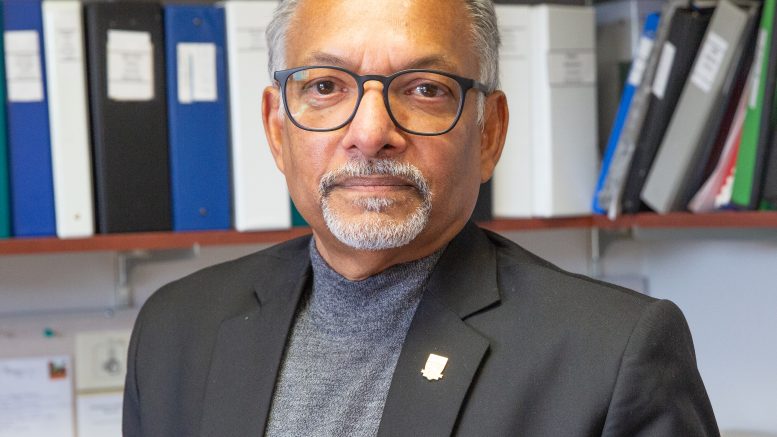The concept of Two-Eyed Seeing was first applied to research practices by Mi’kmaw Elder of the Eskasoni First Nation Albert Marshall. An article co-authored by Marshall describes how he refers to Two-Eyed Seeing as “learning to see from one eye with the strengths of Indigenous knowledges and ways of knowing, and from the other eye with the strengths of western knowledges and ways of knowing, and to using both these eyes together for the benefit of all.”
Indigenous peoples have amassed thousands of years of experience managing ecosystems sustainably and dealing with extreme events. However, this knowledge has often been marginalized within the scientific community, said U of M professor at the Natural Resources Institute C. Emdad Haque.
Through his new project titled “Two-Eyed Seeing for climate-related disaster risk reduction, decolonizing science, and strengthening community resilience” — which recently received funding from the Social Sciences and Humanities Research Council — Haque seeks to bridge the gap by creating a collaborative platform that allows Indigenous knowledges and western scientific methodologies to work together on equal footing.
The project is rooted in the reality that countries across the globe are grappling with the economic, social and human costs of climate change-related disasters. These include wildfires, droughts, floods and more.
Haque said that the cumulative costs of these disasters have amounted to hundreds of billions of dollars globally. To tackle this crisis head on, Haque and his team have selected two countries for the project — Canada and Bangladesh, representing the developed and developing world respectively.
Haque grew up in Bangladesh, a country highly vulnerable to natural hazards. According to the 2021 Global Climate Risk Index report, it ranked seventh on the list of countries most at risk of extreme disasters.
With nearly three decades of relevant experience and international exposure, Haque felt the need to address the growing impact of climate change-related disasters.
“My interest has always been in the risk and hazards areas,” he said.
Early in his career, Haque developed a project funded by the International Development Research Centre focusing on flooding and river channel migration in the Ganges-Brahmaputra area of Eastern South Asia.
Haque continues to work on several projects, including one on small-scale fisheries in partnership with the University of Waterloo and another with the University of Manitoba’s anthropology department focused on dried fish. He is also exploring the role of military involvement in domestic emergencies.
The central premise of Haque’s newest project is to address the existing bias in disaster management, which has typically favoured a top-down scientific approach and often overlooks the knowledge and expertise of Indigenous communities. Through his project, Haque envisions a partnership where both Indigenous and western knowledges contribute to addressing climate change-related disasters.
“We plan to work with a number of Indigenous First Nation communities in Canada, as well as in Bangladesh,” he said.
Haque plans on using a participatory and community-led approach, ensuring that the affected communities take the lead.
“The communities themselves will be in the driver’s seat,” he said. “We are not going to impose any so-called scientific or top-down methodology.”
This participatory approach recognizes that communities themselves, as potential disaster victims, should have agency in determining the specific methods and tools used for disaster management.
Haque hopes to produce a range of outcomes through the project, including knowledge products such as journal articles and monographs, as well as community reports. Once the project is completed, the focus will shift to implementation, which involves developing “planning tools for joint disaster and emergency management.” These tools will be instrumental in addressing various climate-related disasters.
“This project will bring about a lot of learning from different communities, from different parts of the world,” Haque said.
“We’d like to see that these tools and these knowledge products are applied to solve these problems and issues at the local community and regional levels.”



